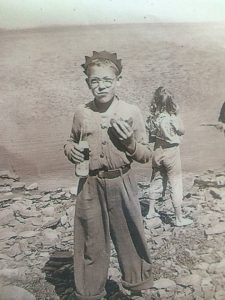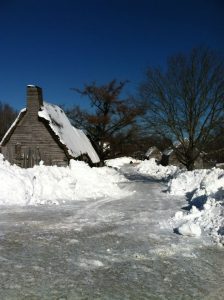
The benefits of newspaper databases when conducting family research can be remarkable. One usually hopes to find valuable birth, marriage, and death notices, or, if you’re lucky, an interesting detail you may not be able to glean from the usual genealogical record. It is not so often that you discover your ancestors (and their exploits) were a favorite subject of the local newspaper, or how public family turmoil can sometimes be.
As someone with a close relationship with my maternal grandparents, it was interesting to learn that my grandfather does not know much about his own maternal grandparents – just that his grandfather, William Hatin, was such a small man that he supposedly wore children’s shoes. Continue reading ‘Of police court fame’






